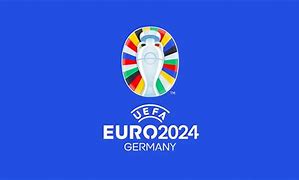The European Championship, often referred to as the Euros, is one of the most prestigious football tournaments in the world. It brings together the best national teams from across Europe to compete for the coveted title every four years. The tournament not only showcases the highest level of football but also encapsulates the passion, drama, and unpredictability that make the sport so enthralling.
The idea of a European championship was first conceived in the 1920s, but it wasn't until 1960 that the inaugural tournament took place. The competition was initially known as the UEFA European Nations' Cup, and it was a modest affair with just 17 teams participating. The Soviet Union emerged as the first champions, defeating Yugoslavia in the final. Over the years, the tournament has grown exponentially, both in terms of the number of participating teams and its global appeal.
The Euros have undergone several format changes since its inception. The most recent change in 2016 saw the expansion of the tournament to 24 teams, allowing more nations to compete on the big stage. The group stage is followed by a knockout phase, culminating in the final match where the champion is crowned. The evolution of the format reflects the desire to make the tournament more inclusive and competitive.
The Euros have witnessed numerous iconic moments that have etched themselves into the annals of football history. Who can forget the "Panenka" penalty by Antonín Panenka in the 1976 final, which has since become a staple in the art of penalty taking? Or the "Miracle of Istanbul" in 2005, where Greece defied all odds to win the championship? These moments are not just about the goals scored or the games won; they are about the stories of triumph against adversity, the celebration of skill, and the sheer joy of the beautiful game.

The tournament has also been a stage for legendary players to showcase their talents. From Michel Platini's ninegoal haul in 1984 to Cristiano Ronaldo's recordbreaking performances, the Euros have seen some of the greatest players in the sport's history leave their mark. These players not only elevate the quality of the tournament but also inspire future generations of footballers.
Hosting the Euros is a significant honor and a massive undertaking for any nation. It requires extensive infrastructure development, including stadiums, transportation, and accommodation. However, the benefits are manifold. The tournament brings economic growth, boosts tourism, and enhances the host country's international profile. It also serves as a catalyst for social cohesion, as football has a unique ability to unite people from diverse backgrounds.
As the Euros continue to evolve, the future looks bright. The introduction of the UEFA Nations League has added a new dimension to the qualification process, making it more competitive and meritocratic. The tournament's popularity shows no signs of waning, and with each edition, the anticipation grows. The Euros are not just a celebration of football; they are a celebration of European unity, diversity, and the indomitable spirit of competition.
The European Championship is more than just a football tournament; it is a cultural phenomenon that transcends borders and languages. It is a testament to the power of sport to bring people together, to inspire, and to entertain. As fans across the continent and around the world gear up for the next edition, the Euros continue to hold a special place in the hearts of football enthusiasts. The thrill of the game, the passion of the fans, and the glory of the championship make the Euros an event like no other.